Dear WesleyNexus Colleague:
Over the past month there have been a number of news and social media reports reflecting on the institutional options being recommended by The Commission on the Way Forward. These recommendations, three in all, will be reviewed by the Council of Bishops this spring to provide petitions to the special General Conference in 2019.
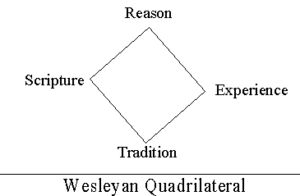 At root, the challenges facing United Methodism are related to sources of power and authority in the church and how both clergy and laity view those sources. Within the Wesleyan tradition, authority has been understood as multi-dimensional resting on what became known as the Wesleyan Quadrilateral of scripture, tradition, reason and experience. In a recent post by evangelical Wesleyan and UMC pastor Allen R. Bevere stating provocatively “it’s time to ditch the Wesleyan Quadrilateral. It has become more trouble than it’s worth, and its current popular usage does not reflect the Wesleyan tradition.” To support his case, he pointed to a 2013 article by Kevin Watson either to return to a more traditional way of using the quadrilateral or acknowledge that we use it in a way that neither Wesley nor Albert Outler (the one who coined the phrase) would approve (https://vitalpiety.com/2013/05/13/experience-in-the-so-called-wesleyan-quadrilateral/).
At root, the challenges facing United Methodism are related to sources of power and authority in the church and how both clergy and laity view those sources. Within the Wesleyan tradition, authority has been understood as multi-dimensional resting on what became known as the Wesleyan Quadrilateral of scripture, tradition, reason and experience. In a recent post by evangelical Wesleyan and UMC pastor Allen R. Bevere stating provocatively “it’s time to ditch the Wesleyan Quadrilateral. It has become more trouble than it’s worth, and its current popular usage does not reflect the Wesleyan tradition.” To support his case, he pointed to a 2013 article by Kevin Watson either to return to a more traditional way of using the quadrilateral or acknowledge that we use it in a way that neither Wesley nor Albert Outler (the one who coined the phrase) would approve (https://vitalpiety.com/2013/05/13/experience-in-the-so-called-wesleyan-quadrilateral/).
By making this claim, both Bevere and Watson are falling into the either/or, my way or the highway of dialogue that is plaguing the United Methodist Church, Protestantism and more broadly, our society.
But there is a better way! It was alluded to in January’s newsletter when Rick Barr proposed that “one cannot be wedded to a single methodology or discipline but instead must engage dialectically across the numerous conceptual and experiential landscapes with other participants. This is what I mean by engaged dialectic. This engagement needs to be open, personal and humble with participants willing to adjust their own ideas and beliefs based on the insights of others.” This is true for sources of authority as well.
The four cornerstones that make up the quadrilateral will have different weights based on the focus and questions that are being asked. The diversity of the Wesleyan tradition and the geographical/cultural context of adherents demand open hearts and open minds. Using either scripture, tradition or the discipline to beat opponents into submission will not lead to unity, truth or community. The science and religion dialogue provide an alternative approach. The commitment to sound thinking in both theology and science and the desire to make humble progress towards increased understanding together with others offers the hope that there are options.
Two of the three options presented by The Way Forward preserve this sense of openness. While WesleyNexus recognizes the difficulties embedded in this current crisis, we also affirm that engagement and dialogue are necessary if we are to remain truly United Methodists.
We appreciate the contributions we have received throughout 2017. We used most of our funds presenting our Evolution Weekend program on February 11, making it available as a live video feed and recording it so those unable to attend can view it at their leisure. Looking forward, we will continue to develop programs throughout 2018. We will need your support and hope you will consider helping us out. WesleyNexus is a 501(c)(3) charitable, educational organization, and we will acknowledge all gifts from individuals for tax reporting purposes.
Thanks in advance for your support.
God Bless,
Rick, Maynard, and the rest of the
WesleyNexus Board of Directors
*********************************
Video of Evolution Weekend in Maryland From February 11, 2018
The video of the Evolution Weekend program,“Faith and Science Confront Pain: The Churches address the Opioid Crisis” is now available online on Youtube.com. The program took place at the Baltimore-Washington Conference Mission Center in Fulton, Maryland and was sponsored by WesleyNexus, IRAS and other individuals who generously contributed to this program.
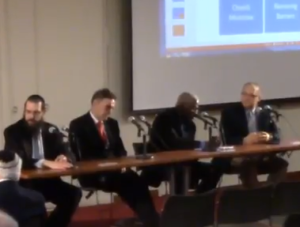 Panelists provided current perspectives on the issues including Michael Oshinsky, PhD, Program Director Pain and Migraine at the NIH National Institute of Neurological Disorders and Stroke, Dr. Gerard Ahern, professor of pharmacology at Georgetown University, Dr. Onaje Salim, program officer with the Substance Abuse and Mental Health Services Administration (Center for Substance Abuse Treatment) in Rockville, Maryland, and Rev. Leo Yates, Jr., LCPC, Division of Rehabilitation Services (DORS)
Panelists provided current perspectives on the issues including Michael Oshinsky, PhD, Program Director Pain and Migraine at the NIH National Institute of Neurological Disorders and Stroke, Dr. Gerard Ahern, professor of pharmacology at Georgetown University, Dr. Onaje Salim, program officer with the Substance Abuse and Mental Health Services Administration (Center for Substance Abuse Treatment) in Rockville, Maryland, and Rev. Leo Yates, Jr., LCPC, Division of Rehabilitation Services (DORS)
Baltimore, MD. You will find the video here with an index to help you navigate to the beginning of each presentation:
https://www.youtube.com/watch?v=0vN0mp6gHxY&t=6824s
Linda Worthington’s article in the UM Connection can be found here on page 9 here:
*********************************
“Artificial Intelligence Turns Deep: Who’s in Control?”
64TH ANNUAL IRAS SUMMER CONFERENCE ON STAR ISLAND
(JUNE 23-30, 2018)
“I’m sorry Dave, I’m afraid I can’t do that…”
said HAL in the most famous line in 2001: A Space Odyssey.
From the IRAS website:
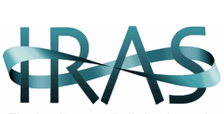 From early myths of artificially created beings to today, the question “who’s in control” has troubled us. The future of AI is likely to have powerful consequences related to jobs, income distribution, social justice and our polity in general. On the 50th anniversary of 2001, IRAS returns to consider the prospects, opportunities and dangers of Artificial Intelligence. If we succeed in creating science fiction’s “conscious” machine, what would be our duties to it (as well as its duties to us)? How will humans identify and find meaning in life as the breadth of skills unique to living, sentient beings shrinks? Join us, as we consider both how AI will shape the future of humanity, and how we can insure that AI benefits society.
From early myths of artificially created beings to today, the question “who’s in control” has troubled us. The future of AI is likely to have powerful consequences related to jobs, income distribution, social justice and our polity in general. On the 50th anniversary of 2001, IRAS returns to consider the prospects, opportunities and dangers of Artificial Intelligence. If we succeed in creating science fiction’s “conscious” machine, what would be our duties to it (as well as its duties to us)? How will humans identify and find meaning in life as the breadth of skills unique to living, sentient beings shrinks? Join us, as we consider both how AI will shape the future of humanity, and how we can insure that AI benefits society.
IRAS cultivates a community of informed and respectful inquiry and dialogue at the intersections of science with religion, spirituality and philosophy in service of global, societal and personal well-being. Star Island provides an environment that frees all who come to renew spiritually, explore matters of consequence, and gain knowledge about the world as it might ideally be. Participants in the WesleyNexus network will qualify for a 30% discount on registration, room and board at Star Island, so this makes the conference an attractive option for you who receive this newsletter. We urge everyone to take seriously this dialogue opportunity.
For more information and to register: http://www.iras.org/2018-summer-conference.html
*********************************
Annual Cosmos and Creation Conference at Loyola University in Maryland
Friday June 8, through Sunday, June 10, 2018.
Loyola University Maryland | 4501 N. Charles Street, Baltimore, MD 21210

For more information, go to: https://www.loyola.edu/join-us/cosmos-creation.
*********************************
The Inside Story: Consciousness, Nature, Transcendence
A transdisciplinary conference on Mind, Matter, Meaning and Mysticism
November 9-10, 2018
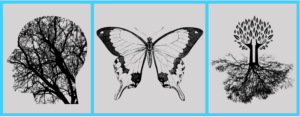 Sponsored by Villanova University, Department of Theology & Religious Studies, Connelly Chair in Christian Theology, the Augustinian Institute, Department of Philosophy, and Halloran Philanthropies.
Sponsored by Villanova University, Department of Theology & Religious Studies, Connelly Chair in Christian Theology, the Augustinian Institute, Department of Philosophy, and Halloran Philanthropies.
Descartes’ famous dictum—I think, therefore I am—gave rise to the modern distinction between mind and matter. But “the inside story” is more complex and thrilling—possibly uniting mind and matter, meaning and mysticism.
Join the in-depth exploration of consciousness, nature, and transcendence, as scientists, philosophers, and theologians ask “What’s on the inside?” Keynote speakers include Philip Clayton, WesleyNexus Advisory Board Member and author of numerous books related to science and religion, including The Predicament of Belief and Mind and Emergence, Ilia Delio, a long time friend of WesleyNexus, past member of the Washington Theological Consortium Science and Religion Study group and author of Christ in Evolution, and Terrence Deacon, American Neuroanthropologist, Professor of Biological Anthropology at the University of California, Berkeley and author of Incomplete Nature: How Mind Emerged from Matter.
More information on the program can be found here:
https://www1.villanova.edu/villanova/artsci/theology/news_events/inside-story-conference/about.html
*********************************
A climate scientist talks—respectfully—to climate-change skeptics, by Amy Frykholm
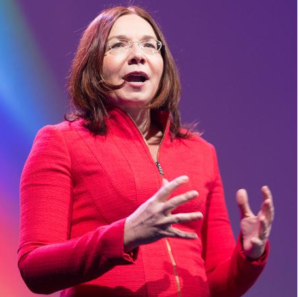 Amy Frykholm interviewed Katherine Hayhoe for Christian Century in February for the March 14, 2018 edition. Katharine Hayhoe is a professor and director of the Climate Science Center at Texas Tech University. She has led climate impact assessments for many cities and regions. Recognizing her ability to communicate the importance of climate change to skeptical audiences, the Yale Program on Climate Change Communication called her a “national treasure.” She also appears in the video series Global Weirding. She and her husband, Andrew Farley, a pastor, wrote A Climate for Change: Global Warming Facts for Faith-Based Decisions.
Amy Frykholm interviewed Katherine Hayhoe for Christian Century in February for the March 14, 2018 edition. Katharine Hayhoe is a professor and director of the Climate Science Center at Texas Tech University. She has led climate impact assessments for many cities and regions. Recognizing her ability to communicate the importance of climate change to skeptical audiences, the Yale Program on Climate Change Communication called her a “national treasure.” She also appears in the video series Global Weirding. She and her husband, Andrew Farley, a pastor, wrote A Climate for Change: Global Warming Facts for Faith-Based Decisions.
*********************************
While You Were Sleeping by Thomas Friedman
In this recent New York Times op-ed, columnist Thomas Friedman addresses both the promises and the challenges implicit in the ever-expanding power and capability of computer technology. With ever increasing speed combined with ever shrinking size problems too complex to tackle are now within reach. Artificial intelligence points to a future where technological skill will be required and “education needs to shift from education as a content transfer, to learning as a continuous process where the focused outcome is the ability to learn and adapt with agency as opposed to the transactional action of acquiring a set skill.” The IRAS conference discussing what this all means in terms of human meaning when our intelligence is matched by our machines could not be more timely.
Read the Friedman article here:
https://www.nytimes.com/2018/01/16/opinion/while-you-were-sleeping.html
*********************************
Report on the 53rd Annual Meeting of the Wesleyan Theological Society
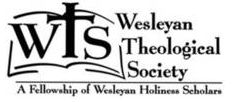 The 53rd Annual Meeting of the Wesleyan Theological Society was held on March 9-10, 2018 on the campus of Pentecostal Theological Seminary, Cleveland, TN. The Meeting was the fifth joint meeting of WTS with The Society for Pentecostal Studies.
The 53rd Annual Meeting of the Wesleyan Theological Society was held on March 9-10, 2018 on the campus of Pentecostal Theological Seminary, Cleveland, TN. The Meeting was the fifth joint meeting of WTS with The Society for Pentecostal Studies.
The meeting, with over 185 members and friends in attendance, focused on the theme “Borders: Bane or Blessing” and saw over 80 presentations from scholars in the fields of biblical studies, systematic theology, historical studies, pastoral theology, Science & Religion, and other areas. The Keynote speaker, Dr. Carlos Cardoza-Orlandi, delivered an address on the overall theme and the Presidential Address was given by Dr. Priscilla Pope-Levison, Society president for 2018, on the history of the Deaconess movement in Wesleyan history.
Society Awards were presented to Dr. William Kostlevy (Lifetime Achievement Award), Dr. Luther Jeremiah Oconer (Book of the Year Award), Dr. Maxie Dunnam (Pastor/Preacher/Scholar Award), and Dr. Robert Ellis Haynes (Dissertation of the Year Award). Affiliate societies The Wesleyan Philosophical Society, Wesleyan Liturgical Society, and Wesleyan Historical Society, and The Society for the Study of the Integration of Technology with Wesleyan Theology & Praxis, all held pre-conference meetings on Thursday, March 8 with over 100 attendees present collectively.
A series of presentations constituted the Science & Religion track. The focus was initiated on Friday evening with an interdisciplinary conversation about Christian Faith and Evolutionary Science. On Saturday specific paper presentations were made. These included Dr. Keegan Osinski speaking on “Sex & Eucharist in the Multiverse: Theological Explorations in Permeabilit;” Dr. J. Stephen Fountain speaking on “Purity and Putrefaction: Metchnikoff’s Pursuit of Perfection;” and a paper by Dr. E. Maynard Moore on “Science and Faith at the Boundary of Knowledge: John Wesley’s Perspective “– this later paper was presented (in the absence of Dr. Moore) by Dr. Eliezer Valentín-Castañón, a colleague on the Board of WesleyNexus.
Dr. Valentin-Castanon reports that the Conference was well attended and participants were fully engaged in the discussions at all levels. The engagement with persons from the Pentecostal Seminary provided an extra dimension of learning for most conferees. He observed that the paper presentations were wide-ranging, every possible subject was considered for discussion. He reported that the paper written by Dr. Moore was well-received and gained a number of favorable comments. He recommends that the paper be submitted for publication in the WTS Journal.
Society First Vice-President Dr. Sam Powell announced that the 2019 meeting will be held on the campus of Wesley Theological Seminary, Washington, DC with the theme of “Eschatology.”
